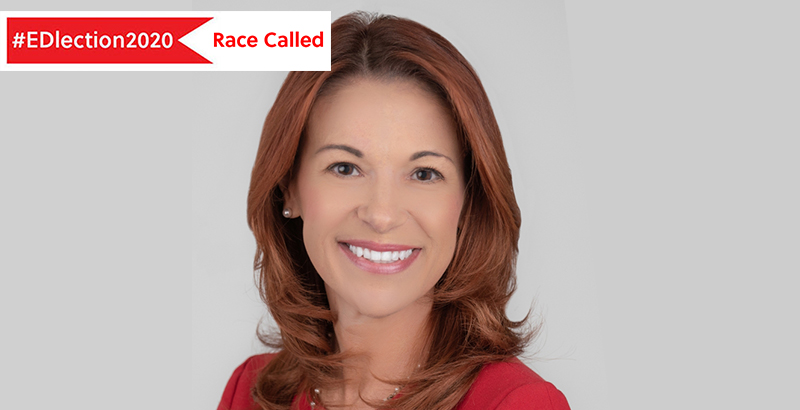North Dakota State Superintendent Kirsten Baesler Sails to Third Term With 59 Percent of Vote

2020’s KEY EDUCATION VOTES: See our full coverage of the 46 races that could reshape America’s schools following Election Day — and get the latest updates on state policies and students’ challenges during the pandemic by signing up for The 74 Newsletter.
North Dakota State Superintendent Kirsten Baesler handily won reelection Tuesday for a third term overseeing the education of about 120,000 students, the third-lowest state enrollment in the nation.
Baesler, 51, won about 59 percent of the votes to defeat fellow Republican Brandt Dick, 50, superintendent of the 200-student Underwood school district. She had been expected to win, having captured 54 percent of the vote in the June nonpartisan primary, more than double Dick’s 26 percent.
Baesler has served as superintendent of public instruction since 2013, after years of working as a classroom aide and teacher. She had also served for nine years on the board of the 4,000-student Mandan school district before winning the state superintendency in 2012.
There had been some controversy in the campaign, stemming from Baesler’s February arrest for DUI and Dick’s challenge to her credentials to be superintendent. Baesler has a teaching license in North Dakota but no administrative license, which Dick said would block her from serving as a principal or superintendent of any district.
State law has allowed individuals with no administrative license to serve as state superintendent since 2007.
The two shared similar views on policy and differed mostly in degrees when they debated Oct. 16.
Both want students back in schools and not learning remotely because of COVID-19. Both want local districts to decide when to bring students back. Dick said he advocated for local control before Baesler did this summer and stressed the need to find a way to bring students to school. Baesler said schools must reopen safely and in consultation with health officials.
Both also worried about students learning at home while parents work. While Baesler praised cooperation from churches and nonprofits in creating learning centers — safe places where students can take online classes during the day — Dick said there just aren’t any in rural areas and that families need more help.
They differed on how schools should use more than $30 million the state is giving schools to help with costs stemming from the pandemic. Dick wanted the extra money to go to any costs districts incur, while Baesler had no issue with current restrictions that the money be used for staff to cover new duties caused by the pandemic, whether that be new hires or overtime for existing employees.
And the two disagreed over the biggest challenge facing schools today. Baesler said the world and the economy are changing quickly, so teachers must encourage curiosity and students’ ability to adapt. Dick said COVID and its toll on students are a larger challenge that must be fixed before tackling other issues.
2020’s KEY EDUCATION VOTES: See our full coverage of the 46 races that could reshape America’s schools following Election Day — and get the latest updates on state policies and students’ challenges during the pandemic by signing up for The 74 Newsletter.
Get stories like these delivered straight to your inbox. Sign up for The 74 Newsletter

;)
